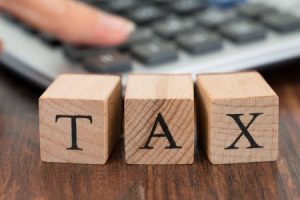
The IRS has tweaked a question that all taxpayers must answer on their tax return in April for tax year 2022, and it’s especially important for online sellers (and collectors) to be prepared so they don’t get into trouble down the road.
Last year, sellers who accepted virtual currency for payments in 2021 had to answer yes to a question at the top of IRS Form 1040 that read:
“At any time during 2021, did you receive, sell, exchange, or otherwise dispose of any financial interest in any virtual currency?”
This year, the question reads differently:
“At any time during 2022, did you: (a) receive (as a reward, award or payment for property or services); or (b) sell, exchange, gift or otherwise dispose of a digital asset (or a financial interest in a digital asset)?”
Note the IRS’s use of the term “digital assets,” which it says replaces “virtual currencies,” the term it used in previous years – presumably to cover more bases. (Collectors should take note of the fact the IRS definition of digital assets includes NFTs.)
It’s not just sellers who must answer the question in the affirmative if they received payment in the form of digital assets – all taxpayers must report “all digital asset-related income when they file their 2022 federal income tax return, as they did for fiscal year 2021,” the IRS states in its recent announcement on the IRS.gov website.
The question, which appears at the top of Forms 1040, Individual Income Tax Return; 1040-SR, U.S. Tax Return for Seniors; and 1040-NR, U.S. Nonresident Alien Income Tax Return, was revised this year to update terminology, the IRS explained.
“In addition, the instructions for answering the question were expanded and clarified to help taxpayers answer it correctly. All taxpayers must answer the question regardless of whether they engaged in any transactions involving digital assets.”
However, taxpayers can answer no to the question if they simply held digital assets and did not engage in any transactions involving digital assets during the year. Another exception: “Purchasing digital assets using U.S. or other real currency, including through electronic platforms such as PayPal and Venmo.”
Unless you’re certain you did not have any transactions in 2022 involving virtual currencies or digital assets – including collectible NFTs, you should read the IRS information carefully and consult a tax professional. It’s not just a matter of answering the question – if you answer yes, you must learn how to report the income from those transactions.





This is confusing to me. What are digital assets?
I am a seller of apparel, but this is not digital.
The wording is confusing to me. I am not sure what to answer on this.
Using the word digital i think of phones or downloaded music ???
“… virtual currency reporting requirements.”
..for my virtual sales.
@LAlex – click through to the IRS announcement and it states:
What is a digital asset?
A digital asset is a digital representation of value which is recorded on a cryptographically secured, distributed ledger. Common digital assets include:
Convertible virtual currency and cryptocurrency
Stablecoins
Non-fungible tokens (NFTs)
Hope that helps.
@LAlex
The best way to explain a digital asset is that they are not physical or tangible objects like apparel and consumer electronics are.
Commonly purchased for their investment potential, the items that Ina has listed in her post are all intangible products that exist in a digital or virtual (i.e., in essence rather than in actuality) state.
Fairly new insofar as investment and payment vehicles go, as is the case with the other earnings that an individual garners, the IRS is now finding itself having to clarify that profits generated through the purchase, sale, and/or trade of digital assets is subject to income tax reporting.